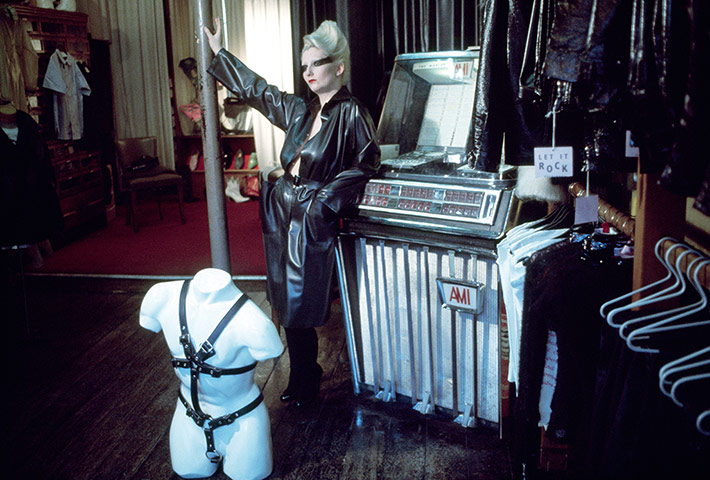
'Sex was a kind of intimidating place,' says Sheila Rock, 'but I just went in and asked if I could take pictures of the interior. You didn't really have to have a reason back then. People were happy to be noticed and have their picture taken. Jordan was this very strong, vibrant presence through her visual style. Her look was her signature. I don't remember much about her personality except that she seemed pretty quiet and self-contained. Her personality did not match the way she looked, but her style was like, Wow!'
Photograph: Sheila Rock

'I met them at their ICA gig in 1976 and went to Chalk Farm to photograph them soon afterwards. They look cool and lean and hungry. They had iconic status even then. The look is down to Paul Simonon [centre]. He did the clothes, the backdrops, the Jackson Pollock splashes on the shirts. Mick [Jones, right] and Joe [Strummer, left] wrote the songs, but Paul was the artist. I photographed them a few times in 1982, when the cool punk band had become a cool rock band'
Photograph: Sheila Rock
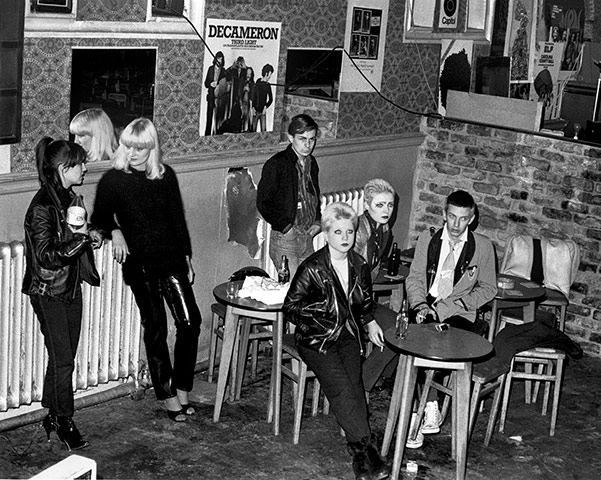
(at the table, left to right, Debbie Juvenile, Siouxsie Sioux and Steven Severin; behind them, Simon Barker)
'This was the day Acme changed to Boy and the walls were suddenly covered in black bin liners. I was in the basement and these kids came down the stairs and they just looked so extraordinary. Early punks were stylish in the extreme and people tend to forget that and concentrate on the grunge and the mohicans and all that later stuff. This was creativity and self-invention out of very little money and such attention to detail. You wanted to be different so you made yourself look different – the shoes, the clothes, the make-up. There is a kind of purity to it that I love'
Photograph: Sheila Rock
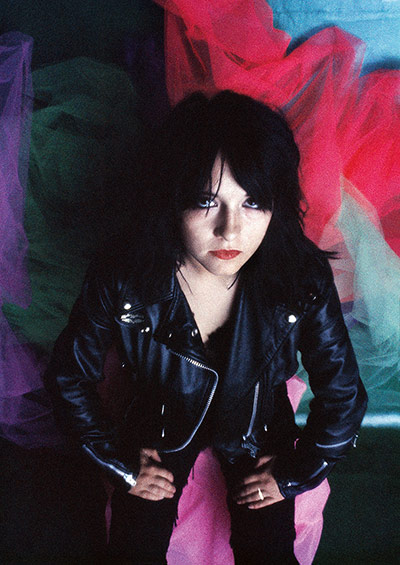
'Jeannette was an important person in the punk scene, a kind of catalyst for a lot of people. She worked with Don Letts in Acme Attractions and it was she who dragged him down to the Roxy club, where all the early punk groups played and where he became the resident DJ. She later became a member of Public Image Ltd with John Lydon and the rest and she now co-owns Rough Trade. Punk was the beginning of a lot of people's careers, the place where they reinvented themselves for the first time. Those were halcyon days for a lot of people' Photograph: Sheila Rock
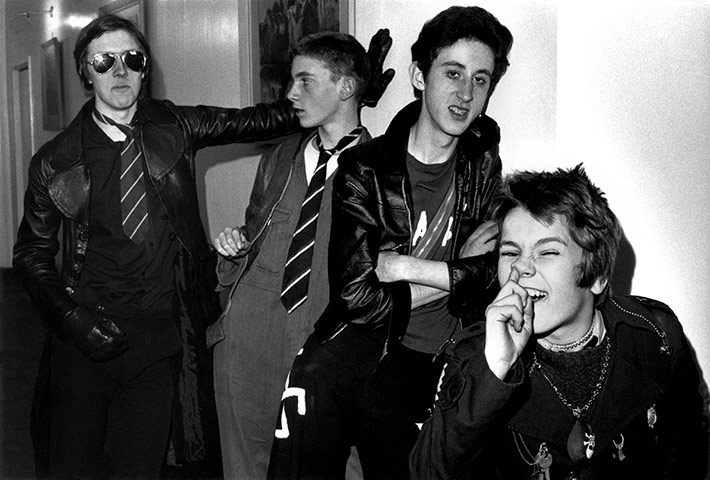
'They were so young. Still at school. I think the drummer was 14 or something. His punk name was Dee Generate and he's now a social worker. The singer was Andy Blade and his mum made his T-shirt. There was an innocence and a purity to them and I remember they were quite nervous posing for the photographs. Punk was such a cultural force that it allowed all these young people to do things they would not have dreamed of doing, like forming a group and playing at the Roxy while you were still at school'
Photograph: Sheila Rock
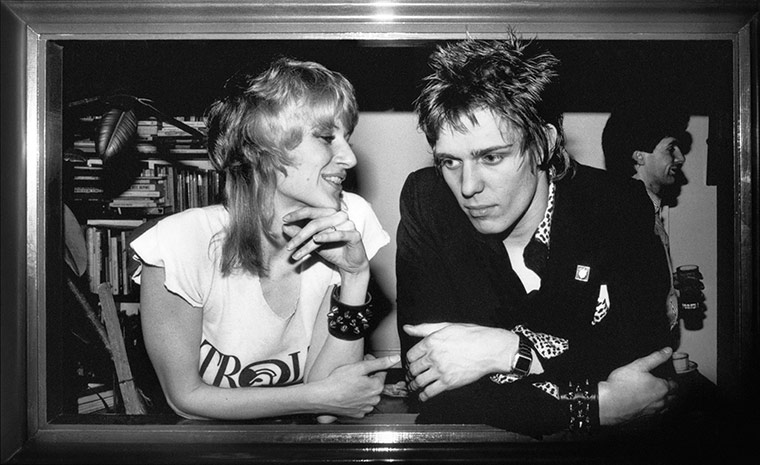
This was taken in my house in west London. It's one of those hatches that English houses used to have between the kitchen and the living room. I think it was a party before we went to a gig. Paul was like the poster boy for cool punk. Caroline was one of the first journalists to write about the punk scene [for Melody Maker], and they made a very beautiful, cool-looking pair. The guy in the background is the writer Jon Savage' Photograph: Sheila Rock
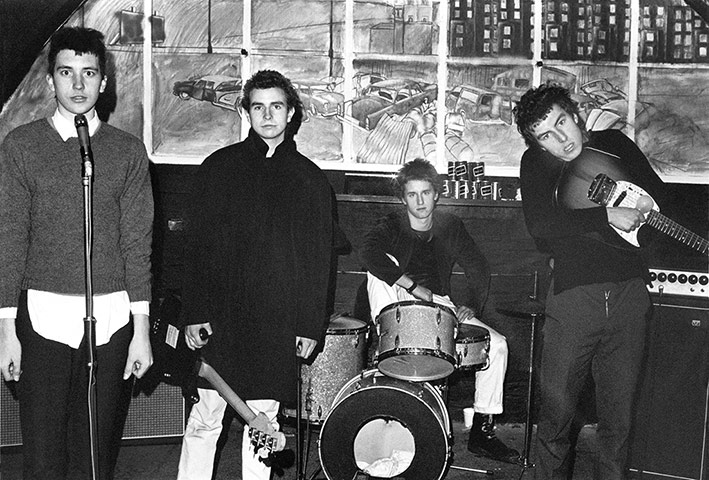
'I often think this is my Diane Arbus picture. It's like I wandered in on these eccentric guys who were so pure and quirky and shy, which is kind of what happened. I'd gone to the rehearsal studio to photograph the Clash, but they weren't around so Bernie (Rhodes), who managed both groups, asked me to take some pictures of Subway Sect. They were like a sect. They were quiet and a bit odd. They would busk in a subway in Hammersmith to get the fare across London. They just look so strange and beautiful. The painting in the background is an early Paul Simonon landscape'
Photograph: Sheila Rock
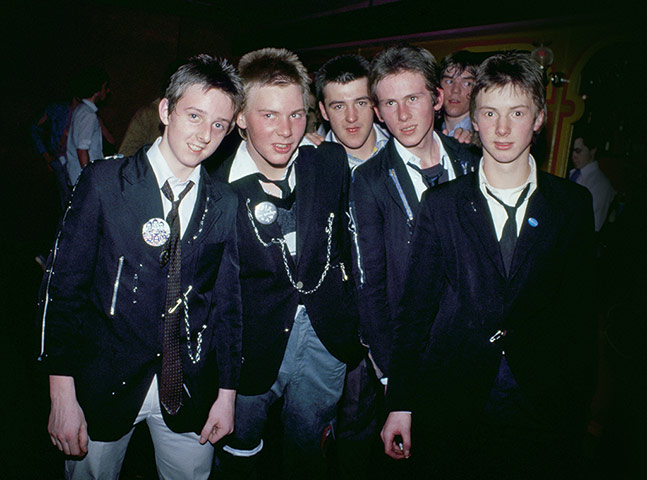
'I was asked to cover the Jam playing a gig outside of London for a Japanese magazine so I went to Aylesbury. The audience was somehow different from London. I just thought these boys look so sweet and innocent and so young but they are trying to be tough punks. There was an innocence to punk as well, particularly as it began to spread across the UK. You can also see how important badges were back then. So many bands, so many badges. I'm going to give out badges at my book launch' Photograph: Sheila Rock/Sheila Rock
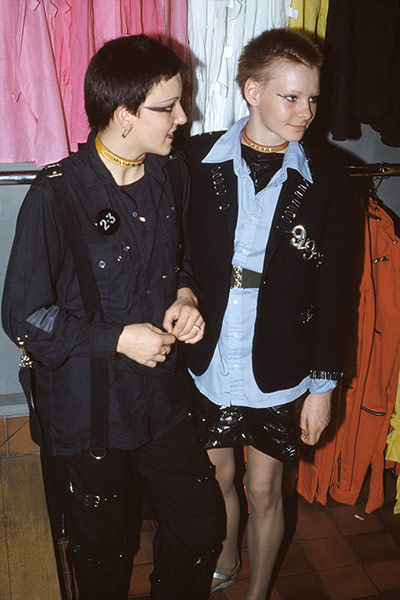
'I think this captures the beginning of "tabloid punk", when the scene exploded overground. Before, the first punks were making their clothes at home using safety pins and zips and whatever to create a look. Then, suddenly you could go to certain shops and buy that look off the peg. It became less about your individual creativity and more about a collective identity. All in the space of about a year'
Photograph: Sheila Rock
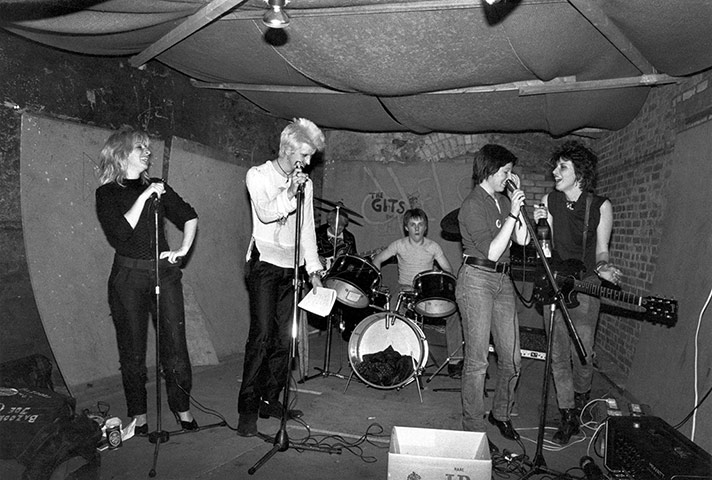
'Chrissie Hynde (above, far right) invited me down to a rehearsal so I came with my little hand-flash camera and took some shots, She was working at the NME at the time and didn't want anyone to know she was in a group or what they were called. They got in trouble with the name later. Steve Strange was the singer. Jane Suck, another journalist (with Sounds), was in the group too. I don't remember much about the songs but I remember Chrissie really getting into her guitar playing. She had a real presence'
Photograph: Sheila Rock
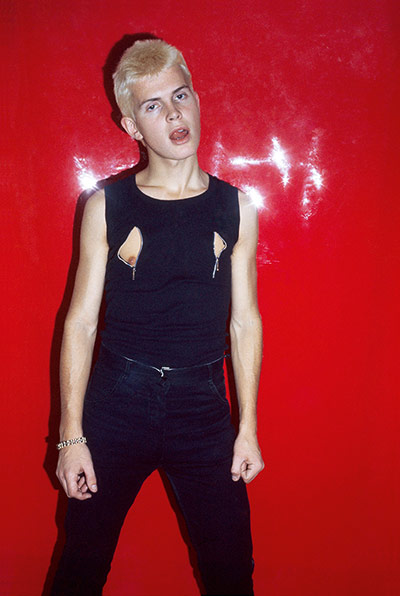
'Billy was beautiful and cocky. He looked a bit like the guy in Thunderbirds. Generation X were briefly managed by John Krivine, who owned Boy. They were middle-class boys, Billy and Tony James, even though they gave out this punk attitude. There was really nothing unruly or yobby about them. A lot of punk bands played on that, but they were quite friendly'
Photograph: Sheila Rock







